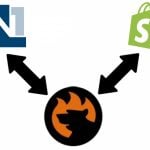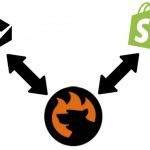A Comprehensive Guide to Shopify ERP Integration: Definition, Benefits, Methods, Challenges & Solutions
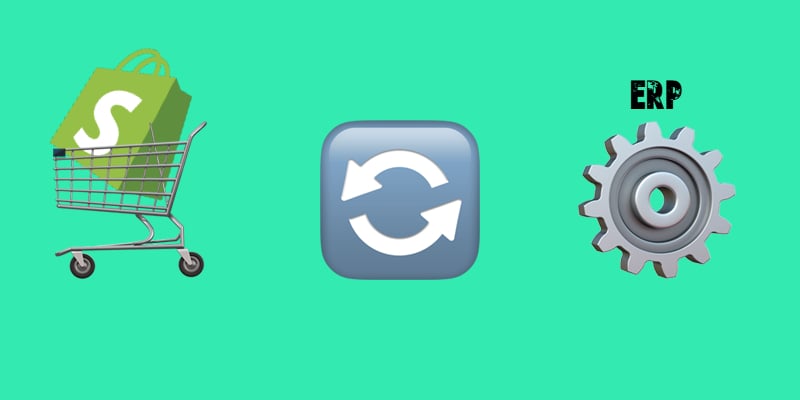
E-commerce growth isn’t just about attracting more customers — it’s about building an infrastructure that scales effortlessly, and ERP tools are an inevitable part of it. Below, we will introduce you to Shopify ERP integration. This complex process bridges Shopify’s e-commerce excellence with the deep functionality of ERP systems, which empower Shopify merchants to handle inventory, finances, and customer relationships with unmatched precision by unifying operations, streamlining data, and enhancing decision-making.
This comprehensive guide explores everything you need to know about integrating Shopify with ERP systems. From understanding the basics of ERP to diving into its benefits, challenges, and integration methods, we’ll cover how tools like the Firebear Import & Export Tool simplify these processes. Whether you’re a small business or an enterprise, Shopify integration with ERP offers the key to unlocking operational efficiency and sustainable growth.
Read on to discover the best solutions for ERP for Shopify, how they work, and why this integration is essential for taking your e-commerce business to the next level in 2025.
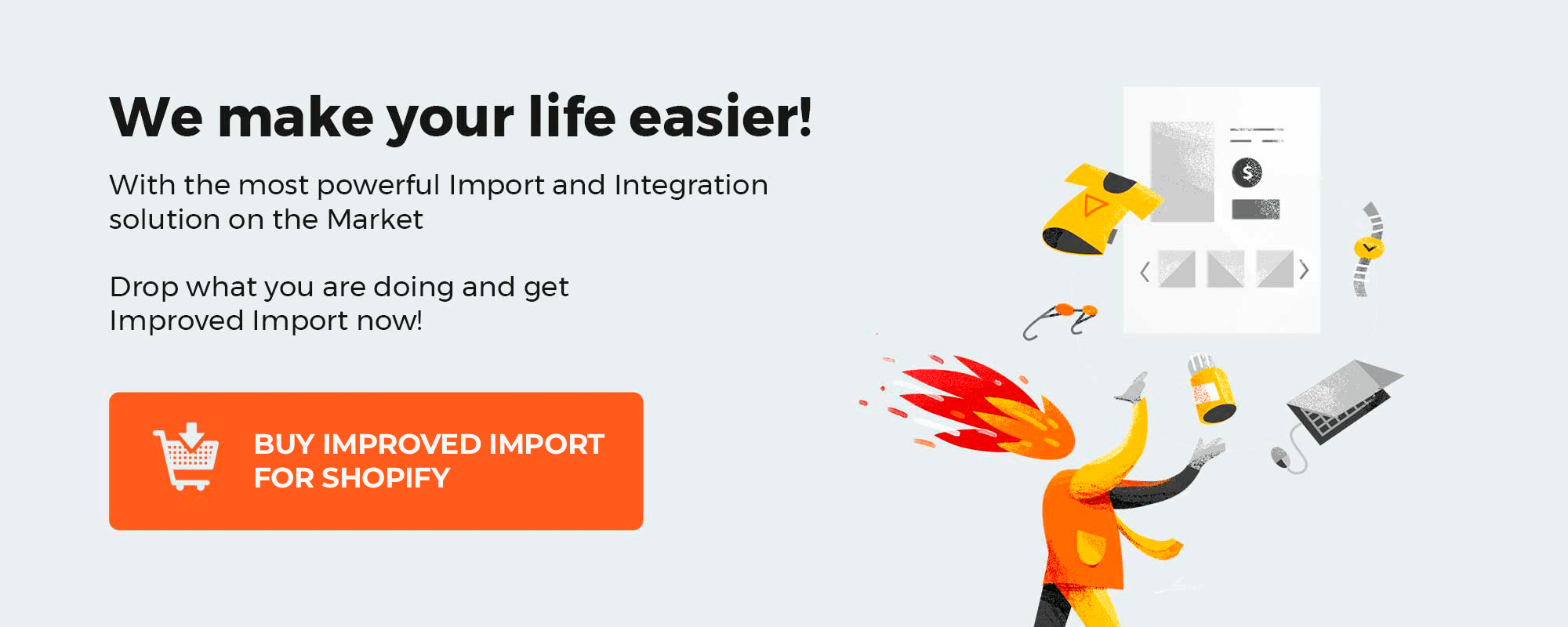
Table of contents
- 1 Understanding ERP Systems: The Backbone of Modern Business Management
- 2 Benefits of Shopify ERP Integration: Unlocking E-commerce Potential
- 3 Methods of Integrating Shopify with ERP Systems
- 4 Challenges in Shopify ERP Integration
- 5 Best Shopify ERP Integration Solutions
- 6 Conclusion: Elevate Your E-commerce with Shopify ERP Integration
- 7 FAQ
Understanding ERP Systems: The Backbone of Modern Business Management
Enterprise Resource Planning (ERP) systems are the silent orchestrators behind efficient business operations. Designed to unify and streamline critical processes, ERPs centralize data and functions across departments — think inventory management, order processing, and customer relationship management. But while Shopify excels as a robust e-commerce platform, its native tools lack the deep functionality of a dedicated ERP. To bridge this gap, merchants often turn to Shopify ERP integration, leveraging external solutions to unlock unparalleled operational advantages.
What is an ERP System?
At its core, an ERP is software designed to integrate various business processes into a single, cohesive system. It eliminates silos by creating a centralized repository of data, enabling seamless communication between departments. From procurement to customer service, an ERP ensures everyone works with the same up-to-date information, fostering efficiency and accuracy.
For merchants on Shopify, integrating ERP systems is often a necessity rather than a luxury. The platform’s native features shine for storefront management, but complex back-office processes — like supply chain optimization or financial tracking — demand the enhanced capabilities of ERP software. This is where Shopify integration with ERP comes into play, empowering businesses to scale without compromise.
Types of ERP Systems: On-Premise, Cloud, and Hybrid
ERP systems come in three primary flavors, each catering to distinct business needs:
- On-Premise ERP. Traditional and highly customizable, on-premise ERP solutions are installed locally on a company’s servers. They offer maximum control and security, making them ideal for businesses with stringent regulatory requirements. However, these systems demand significant upfront investment and ongoing maintenance.
- Cloud ERP. The modern favorite, cloud-based ERP systems operate on a subscription model and are hosted on external servers. Accessible from anywhere with an internet connection, they’re ideal for agile businesses. They also simplify Shopify ERP integration by offering scalable, plug-and-play solutions tailored to dynamic e-commerce needs.
- Hybrid ERP. A blend of both worlds, hybrid ERP combines on-premise and cloud functionalities. For instance, this model lets you keep sensitive data on-premise while leveraging the cloud’s scalability for other operations.
Core Functions of ERP Systems
An ERP system’s value lies in its ability to centralize and optimize key business processes. Here’s how it supports critical areas of e-commerce:
- Inventory Management. ERP systems track stock levels in real time, preventing overstocking and stockouts. This synchronization is vital for Shopify merchants who rely on accurate inventory data to meet customer demands without delays.
- Order Processing. From payment verification to shipping logistics, ERPs automate the order lifecycle. For e-commerce stores using Shopify, ERP integration ensures smooth coordination between online orders and backend operations, eliminating manual errors.
- Customer Relationship Management (CRM). Beyond sales data, ERP systems manage customer interactions, preferences, and history. This functionality complements Shopify’s frontend capabilities, enabling personalized experiences that drive loyalty.
Why Shopify Needs ERP Integration
While Shopify offers powerful tools for managing storefronts, it stops short of providing advanced back-office solutions. This gap is the reason why businesses invest in ERPs. By integrating Shopify with ERP systems, merchants gain access to features like advanced reporting, supply chain automation, and multi-location inventory tracking.
Therefore, understanding ERP systems is pivotal for any Shopify merchant aiming to grow their business. The next section will delve into the benefits of Shopify ERP integration.
Benefits of Shopify ERP Integration: Unlocking E-commerce Potential
By connecting Shopify with a robust ERP system, you can transform your daily operations into a streamlined workflow that incorporates the following benefits:
Centralized Data Management: From Silos to Synergy
Modern businesses often juggle data across fragmented systems, creating blind spots that hinder growth. Integrating Shopify with an ERP system eliminates these silos, consolidating information from inventory, sales, customer support, and finance into one centralized hub.
This unification provides leaders with a bird’s-eye view of operations, empowering smarter, data-driven decisions. For instance, sales trends captured through Shopify are immediately accessible alongside inventory forecasts and financial reports within the ERP. The result? Businesses not only react to changes faster but anticipate them, gaining a competitive edge.
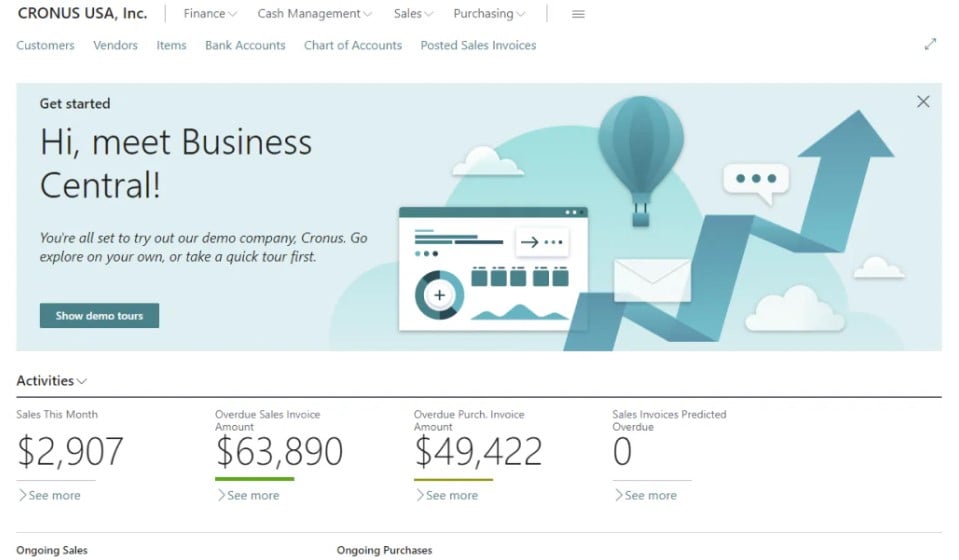
Centralized Data Management with Microsoft Dynamics 365 Business Central
Improved Inventory Management: Balance at Scale
Nothing frustrates a customer — or a merchant — more than seeing “out of stock” or “delivery delay” messages. With Shopify ERP integration, inventory updates happen in real-time, ensuring that stock levels reflect the reality on the ground.
Merchants can seamlessly track inventory across multiple locations, preventing overstocking or stockouts. This precision reduces waste, optimizes storage costs, and enhances order fulfillment speed, cementing a reputation for reliability.
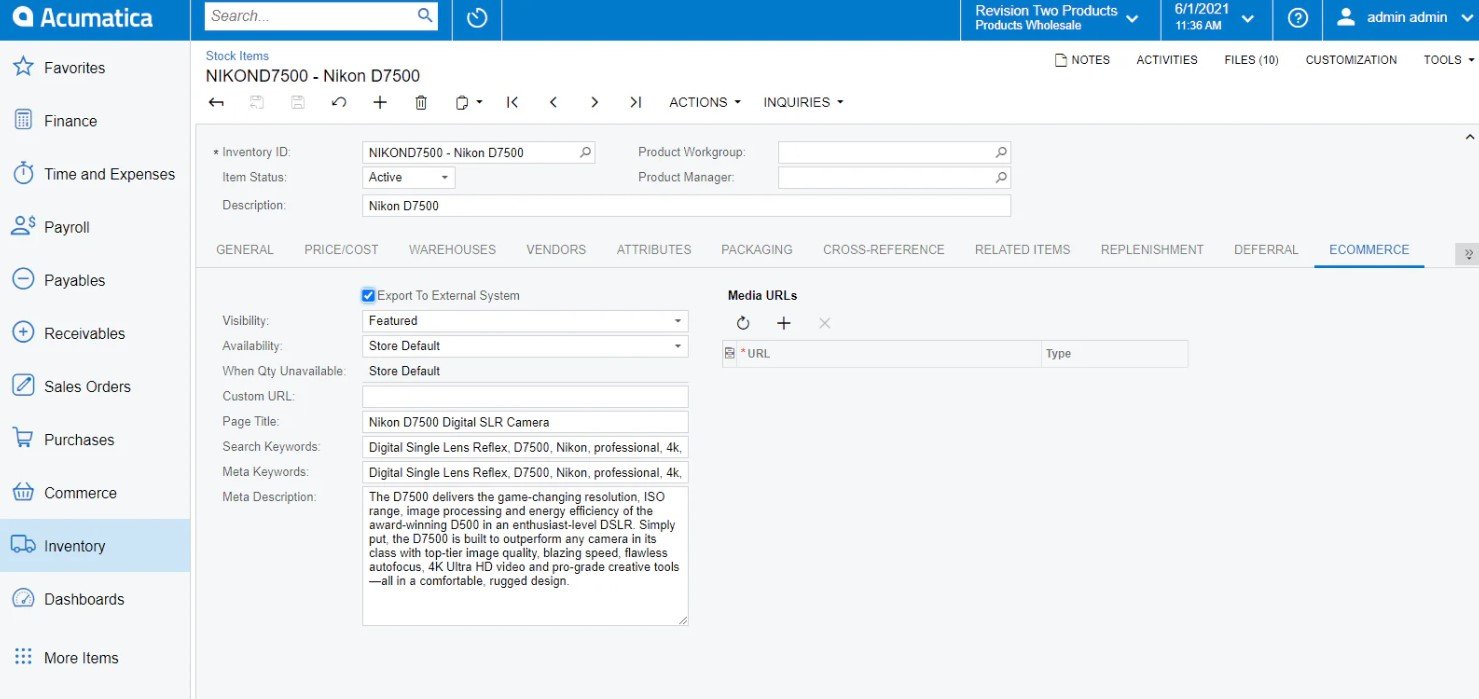
Improve Inventory Management with Acumatica ERP
Enhanced Customer Experience: Speed and Accuracy Rule
In e-commerce, time is everything. Customers expect quick order processing, accurate delivery estimates, and responsive service. Shopify integration with ERP ensures orders move smoothly from the storefront to fulfillment, without manual intervention or delays.
Moreover, centralized data enables tailored customer interactions. With instant access to purchase history and preferences through ERP-integrated CRMs, businesses can deliver personalized experiences that turn one-time buyers into loyal advocates.
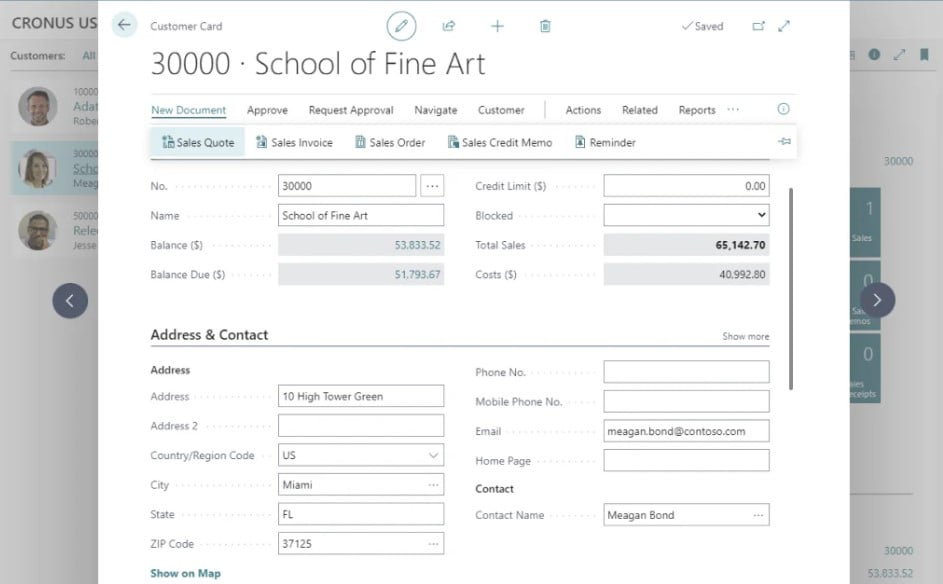
Efficient Customer Management with Microsoft Dynamics 365 Business Central
Other Key Benefits of Shopify ERP Integration
Beyond the big-ticket advantages, Shopify ERP integration unlocks a range of additional benefits, helping businesses scale efficiently:
- Controlling IT Costs: A single, integrated system reduces the expense of maintaining multiple disconnected platforms, lowering IT overheads.
- Providing Financial Visibility: ERPs generate detailed financial reports, offering clarity on profitability and cash flow.
- Securing All Company Data in One Place: Centralized systems ensure data integrity and reduce the risk of breaches, safeguarding sensitive information.
- Creating a Single Analytics or Reporting Location: Integrated reporting dashboards bring clarity, enabling quick identification of opportunities and bottlenecks.
- Tracking Inventory and Sales Accurately: Merchants gain precise control over product movement, improving demand forecasting and revenue management.
- Streamlining Collaboration Between Departments: Integration fosters collaboration, allowing marketing, sales, and operations teams to work from shared data.
- Improving Customer Service: Faster order processing and accurate inventory updates lead to fewer complaints and more satisfied customers.
- Increasing Supply Chain Efficiency: Merchants can monitor and optimize supply chain processes, reducing delays and costs.
- Providing Smarter Business Intelligence: ERP analytics turn raw data into actionable insights, driving long-term growth strategies.
Methods of Integrating Shopify with ERP Systems
Choosing the right method for Shopify ERP integration can be the difference between seamless scalability and operational headaches. From ready-to-use Shopify apps to fully customized solutions, each approach offers unique benefits. Whether you’re a small business looking for simplicity or an enterprise with complex needs, there’s an integration method tailored to your goals. Let’s explore the four main options.
1. Native Integrations: Seamless Simplicity
provides a curated list of certified ERP apps designed for out-of-the-box integration with Shopify. These solutions are tailor-made to connect Shopify with Dynamics 365 Business Central, NetSuite ERP, Acumatica Cloud ERP, Infor ERP, and Brightpearl. The advantage? Minimal setup and maximum compatibility.

Shopify Global ERP Program
For businesses prioritizing ease of use, these Shopify apps offer real-time synchronization of orders, inventory, and financial data. Native integrations are especially suitable for merchants who want a reliable connection without diving into complex customizations. However, the flexibility of these solutions may be limited compared to other methods.
2. Custom API Integrations: Tailored Precision
For businesses with unique operational needs, custom API integrations are the ultimate solution. Shopify provides a robust API framework that allows developers to build bespoke integrations between Shopify and virtually any ERP system.
This method empowers merchants to design solutions that address specific challenges, such as complex multi-location inventory systems or region-specific tax rules. While the level of customization is unmatched, these integrations often require significant development resources and ongoing maintenance.
3. Third-Party Integration Platforms (iPaaS): The Middleware Approach
Cloud-based platforms, known as Integration Platform as a Service (iPaaS), simplify the process of connecting Shopify with ERP systems. Tools like MuleSoft, Celigo, and Zapier act as intermediaries, enabling data to flow seamlessly between systems without the need for heavy coding.
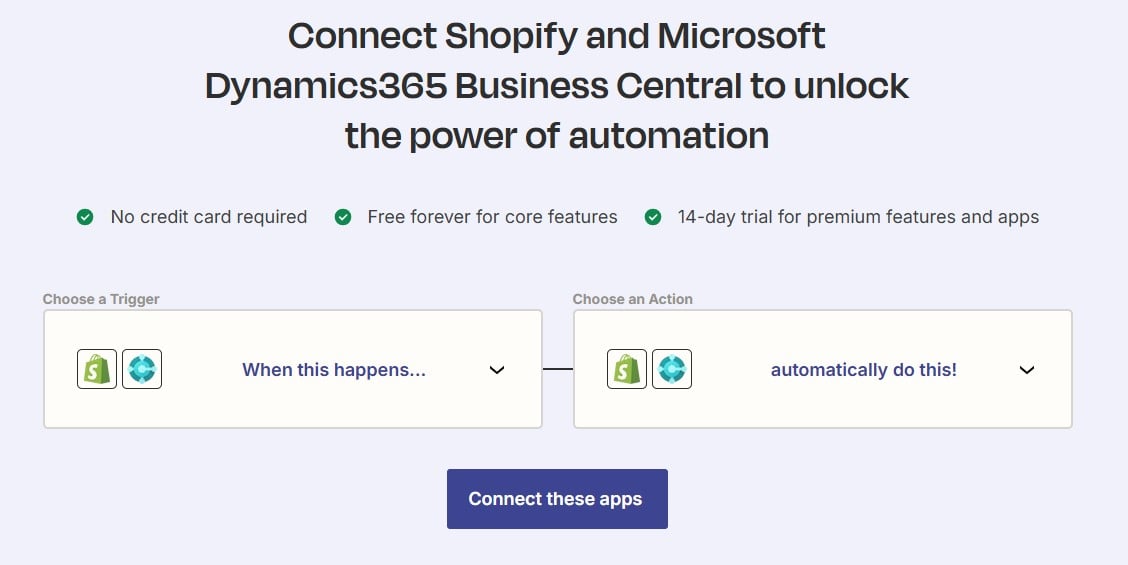
Integration Between Shopify and Microsoft Dynamics 365 with Zapier
iPaaS solutions are ideal for businesses managing multiple integrations, as they provide a centralized hub for data synchronization across platforms. While they offer flexibility and scalability, their subscription costs and reliance on third-party software can add up over time.
4. Import & Export Tool for Shopify by Firebear: A Universal Solution
For merchants seeking a comprehensive yet straightforward solution available right in the Shopify admin, the stands out. This app enables seamless Shopify ERP integration by automating data transfers through scheduled imports and exports.
Key features include:
- Multiple File Formats & Sources: Import and export a wide range of file formats between Shopify and different data sources.
- Attribute Mapping: Align Shopify attributes with ERP fields effortlessly.
- Automated Synchronization: Keep Shopify and ERP data synced in real-time with scheduled updates.
- Multi-ERP Compatibility: Integrate multiple systems – not only ERP – without needing separate tools.
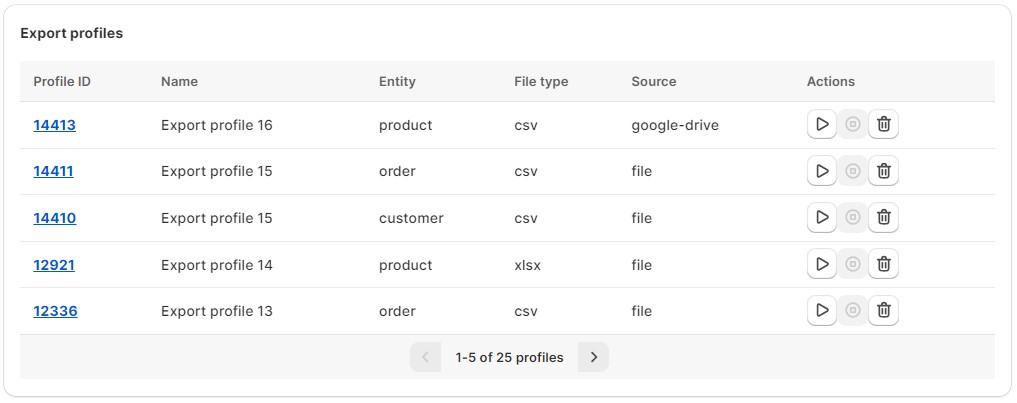
Export Profiles of Import & Export Tool for Shopify
This tool provides the perfect balance between simplicity and flexibility, making it a go-to choice for merchants aiming to manage integrations efficiently without sacrificing control.
Comparison Table: Shopify ERP Integration Methods
Which Method Should You Choose? Well, let’s compare them side by side:
| Integration Method | Best For | Key Advantages | Potential Drawbacks |
| Native Integrations | Small to mid-sized businesses | Easy to set up, reliable, certified by Shopify | Limited flexibility and customization |
| Custom API Integrations | Businesses with unique needs | Fully customizable, tailored to specific goals | High development cost, requires ongoing maintenance |
| Third-Party Integration Platforms | Businesses with multiple integrations | Centralized integration hub, scalable | Subscription costs, reliance on third-party software, lack of customization |
| Firebear Import & Export Tool | Merchants seeking a universal solution and businesses with multiple integrations and unique needs | Automates data sync, supports multiple ERPs and third-party integrations | Requires initial setup and configuration |
The right method depends on your business size, budget, and complexity of operations. For straightforward needs, native apps or the Firebear tool offer excellent functionality. Businesses requiring extensive customization or handling multiple platforms might prefer custom APIs or iPaaS solutions.
No matter the choice, Shopify ERP integration is a game-changer, turning disconnected systems into a unified powerhouse for growth and efficiency.
Challenges in Shopify ERP Integration
While integrating Shopify with ERPs unlocks transformative benefits, it’s not without its hurdles. From data inconsistencies to the complexities of custom solutions and cost management, merchants must navigate several challenges to achieve a seamless connection between Shopify and their ERP systems. Thankfully, tools like the Import & Export Tool for Shopify provide innovative solutions to address these obstacles effectively.
Data Synchronization Issues: Bridging the Gap
Synchronizing data between Shopify and ERP systems can be a daunting task. Differences in data formats, field structures, and update frequencies often result in inconsistencies that disrupt operations. For example, mismatched inventory levels or incorrect order statuses can lead to stockouts, delays, and frustrated customers.
The Import & Export Tool for Shopify mitigates these issues with powerful mapping and automation features. Its attribute mapping functionality ensures that Shopify’s data fields align perfectly with those of the ERP, eliminating discrepancies at the source. Automated scheduling keeps both systems in sync, reducing the need for manual intervention and minimizing errors.
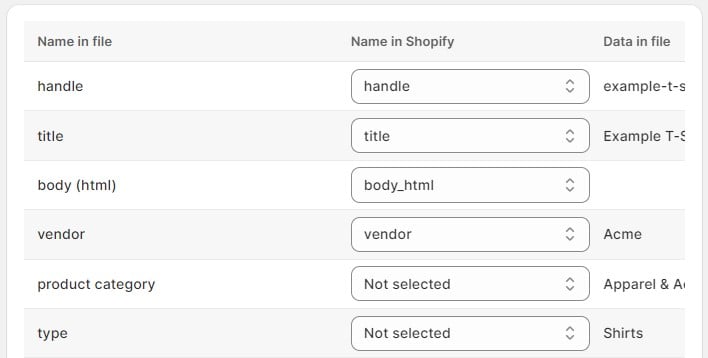
Import Mapping Section of Import & Export Tool for Shopify
Complexity of Custom Integrations: Simplifying the Process
Developing custom integrations between Shopify and ERP systems is resource-intensive. These projects often require specialized technical expertise, extended timelines, and ongoing maintenance. For many businesses, this complexity can be a barrier to adopting ERP solutions that align with their specific needs.
The Import & Export Tool for Shopify addresses these challenges with its universal, user-friendly interface. Designed for accessibility, it enables merchants to configure data flows between Shopify and their ERP systems without deep technical knowledge. By offering prebuilt templates and customization options, the tool simplifies the process of syncing Shopify data with ERP requirements — and vice versa — saving time and reducing reliance on external developers.
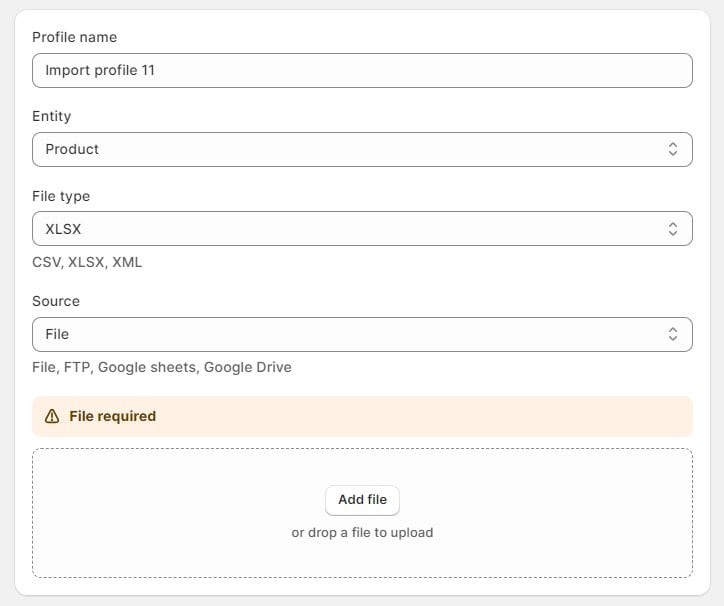
Import Profile of Import & Export Tool for Shopify
Cost Considerations: Budget-Friendly Solutions
Integrating Shopify with ERP systems can be expensive, especially when using multiple tools to handle various aspects of data transfer. Each additional tool or subscription adds to the financial burden, making it difficult for businesses to justify the investment.
The Import & Export Tool for Shopify provides a cost-effective alternative as a universal data integrator. With this single solution, merchants can manage all aspects of Shopify integration with ERP, including imports, exports, and attribute mapping. By consolidating functionality into one platform, businesses can significantly reduce integration costs while maintaining high efficiency.
Best Shopify ERP Integration Solutions
Integrating Shopify with a robust Enterprise Resource Planning (ERP) system is essential for streamlining operations and enhancing business efficiency. Here are 25 top Shopify ERP integration solutions for 2025:
- : A comprehensive cloud-based ERP offering real-time data synchronization with Shopify, facilitating seamless financial and inventory management.
- : Tailored for small to mid-sized businesses, it integrates with Shopify to provide advanced analytics and streamlined operations.
- : Combines CRM and ERP capabilities, enabling Shopify merchants to automate processes and gain insights across sales, customer service, and operations.
- : An open-source ERP offering a suite of business applications, integrating with Shopify to manage sales, inventory, and accounting efficiently.
- : Provides robust financial and operational tools, with Shopify integration to enhance order processing and inventory control.
- : A cloud-based ERP that integrates with Shopify, offering scalability and real-time visibility into business operations.
- : Designed for retail and wholesale, it synchronizes with Shopify to manage orders, inventory, and customer data seamlessly.
- : A scalable ERP solution integrating with Shopify to optimize supply chain, production, and financial management.
- : Offers industry-specific ERP solutions that integrate with Shopify to streamline operations and enhance customer engagement.
- : Integrates with Shopify to manage accounting, inventory, and reporting for growing businesses.
- : Focuses on inventory management and integrates with Shopify for better stock control and order fulfillment.
- : A manufacturing and distribution-focused ERP that connects with Shopify to provide comprehensive operational visibility.
- : Offers a flexible ERP solution with Shopify integration to manage inventory, supply chain, and finances effectively.
- : A cloud-based accounting tool that connects with Shopify to simplify financial management for small businesses.
- : Provides a suite of business applications with Shopify integration for seamless sales, inventory, and customer relationship management.
- : An open-source ERP that integrates with Shopify, offering tools for accounting, HR, and supply chain management.
- : A cloud-based inventory management system that integrates with Shopify for accurate stock tracking and order management.
- : A cloud-based ERP focusing on HR and financial management, with Shopify integration for unified business operations.
- : Oracle’s ERP solution connects with Shopify to enhance operational efficiency and supply chain visibility.
- : A next-generation ERP suite that integrates with Shopify for real-time data analytics and streamlined processes.
- : An accounting-focused ERP that syncs with Shopify to simplify bookkeeping and financial tracking.
- : A retail-centric ERP that integrates with Shopify to enhance point-of-sale and inventory management.
- : An inventory and order management system that integrates with Shopify to provide real-time stock updates and reporting.
- : A comprehensive cloud-based ERP solution that integrates with Shopify to automate financial processes, improve supply chain efficiency, and provide advanced analytics.
- : A project-based ERP system designed for businesses with complex operations, integrating with Shopify to streamline accounting, contracts, and inventory management.
Conclusion: Elevate Your E-commerce with Shopify ERP Integration
Successful e-commerce demands operational efficiency and data accuracy often associated with third-party ERPs. However, there is a gap between Shopify’s powerful capabilities and the deep functionality of enterprise resource planning systems. You can easily get rid of it with a well-planned Shopify ERP integration strategy. Whether through native integrations, custom APIs, third-party platforms, or universal solutions like the Firebear Import & Export Tool, there’s a path for every business to streamline processes and scale effectively.
So, you can easily harness the key benefits of Shopify integrated with an ERP system: centralized data management, improved inventory tracking, enhanced customer experience, and advanced financial visibility. As competition intensifies, businesses that embrace Shopify ERP integration gain a strategic advantage. The ability to unify operations, make informed decisions, and provide exceptional customer experiences is no longer a luxury — it’s a necessity.
If your goal is to build a future-proof e-commerce operation, ERP for Shopify isn’t just an upgrade — it’s the backbone of sustainable growth. Contact Firebear Studio today to learn how our data integration solutions can transform your Shopify store into a well-oiled machine ready to tackle tomorrow’s challenges.
FAQ
Can Shopify integrate with ERP?
Yes, Shopify integrates seamlessly with various ERP systems to streamline business operations. You can connect Shopify to leading ERP solutions like NetSuite, Microsoft Dynamics 365, SAP, and more through native apps, custom APIs, or third-party integration platforms like Zapier. These integrations enable efficient data synchronization, inventory management, and order processing.
Does Shopify use SAP?
Shopify does not inherently “use” SAP but offers robust integration capabilities with SAP ERP systems, including SAP Business One and SAP S/4HANA. These integrations allow Shopify merchants to manage complex back-office processes like supply chain optimization, financial tracking, and multi-location inventory from SAP directly.
Does Shopify integrate with Oracle?
Yes, Shopify integrates with Oracle ERP systems such as Oracle Fusion Cloud ERP and Oracle JD Edwards. These integrations provide businesses with tools for advanced analytics, inventory management, and financial operations, ensuring a smooth flow of data between Shopify and Oracle.
Can you use CRM and ERP together with Shopify?
Absolutely. CRM (Customer Relationship Management) and ERP (Enterprise Resource Planning) systems can be used together with Shopify. Many ERP solutions, like Microsoft Dynamics 365 and NetSuite, include CRM functionalities, making it easy to manage customer relationships and back-office operations within a single integrated platform connected to Shopify.
What are the types of Shopify ERP integration?
There are four primary types of Shopify ERP integrations:
- Native Integrations: Prebuilt apps in Shopify’s Global ERP Program, such as NetSuite ERP Connector.
- Custom API Integrations: Tailored connections using Shopify’s API to sync with ERP systems.
- Third-Party Integration Platforms (iPaaS): Middleware like Zapier or Celigo for multi-system data synchronization.
- Universal Tools: Solutions like the Firebear Import & Export Tool for versatile data integration and automation.



